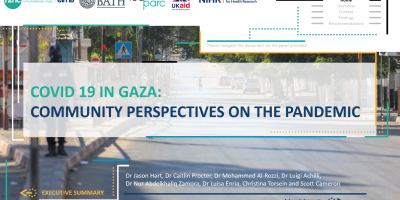While there hasn’t been an official declaration, famine is already taking place in parts of the Gaza Strip, UN officials said this week. It has arrived with unprecedented speed, as Israel has laid total siege to the enclave for more than three months and carried out a massive bombing campaign that has destroyed much of the infrastructure needed to sustain life.
The deliberate starvation of civilians is a war crime, and the allegation that Israel is creating the risk of death from starvation in Gaza is central to the case being brought by South Africa at the International Court of Justice (ICJ) accusing Israel of genocide.
To better understand the hunger situation in Gaza, The New Humanitarian sat down with Alex de Waal, executive director of the World Peace Foundation at the Fletcher School of Law and Diplomacy at Tufts University in the US, and an expert of famine and humanitarian crises.
As starvation and deadly disease outbreaks spread, UN agencies are calling for a fundamental change in the amount of aid entering Gaza as well as increased access and safety guarantees from Israel to allow humanitarian activities to take place inside the territory.
But even if there is a massive increase in the amount of assistance entering Gaza, the dire conditions are “not something that can be turned around overnight”, de Waal said. And if the aid delivery and access situation isn’t soon reversed, “it won’t be long before children, young children, start dying in large numbers of hunger and disease,” he added.



